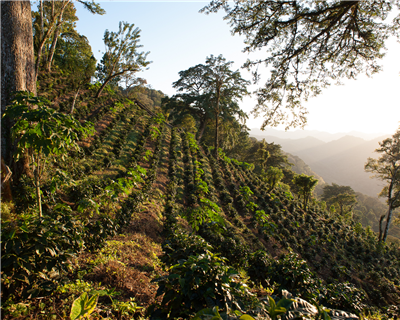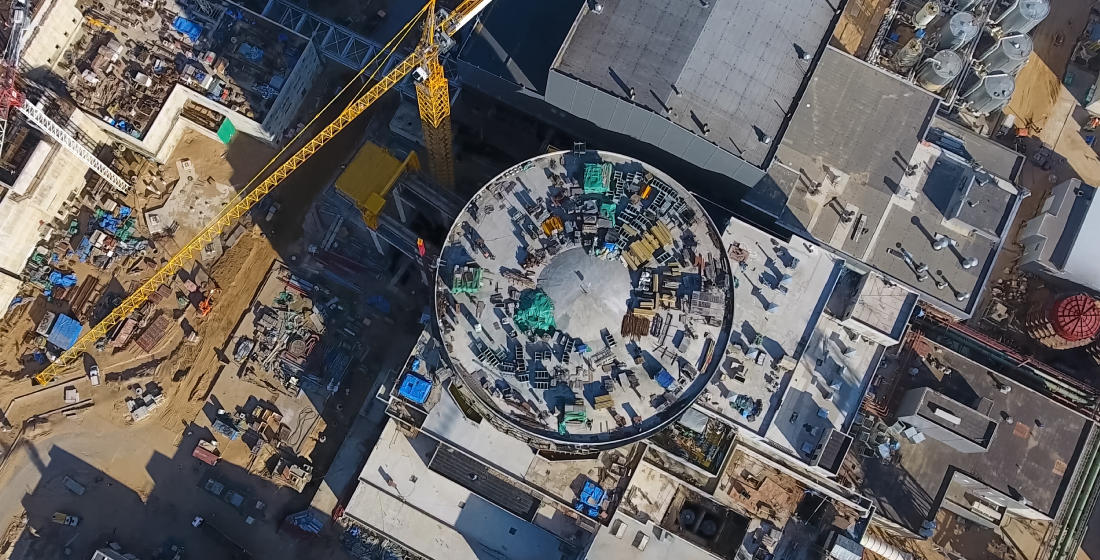Funds fill gaps in the value chain
Development finance institutions (DFIs) have of course always led the charge in sweetening deals in emerging markets – using their own liquidity, quasi-sovereign rating or willingness to lend for longer tenors as a way to attract banks to the table. But now the DFIs are experimenting with new strategies and structures to get funding to the small farmers and traders who need it most.

Development finance institutions (DFIs) have of course always led the charge in sweetening deals in emerging markets – using their own liquidity, quasi-sovereign rating or willingness to lend for longer tenors as a way to attract banks to the table. But now the DFIs are experimenting with new strategies and structures to get funding to the small farmers and traders who need it most.
Channel through the traders
The Netherlands’ development bank Nederlandse Financierings-Maatschappij voor Ontwikkelingslanden (FMO) is currently setting up a funding programme in cooperation with the Dutch Sustainable Trade Initiative (IDH) to finance farmers via supply chain managers. It expects to conclude its first transaction with a major trader very soon and is also in talks with several other traders, according to Marjolein Landheer, manager of agribusiness, food and water.
“We cannot provide small, single loans for farmers,” she says. But by channeling funds through supply chain managers like traders, FMO can “go one step further along the value chain than we have up until now”.
And while traders already usually part-finance their suppliers by providing seeds or fertiliser, it is “in most cases to a limited extent,” says Landheer. “We would like to come in to make their farmer finance programmes larger.”
FMO and IDH have so far pooled $50 million and will target a handful of specific smallholder crops including coffee, cocoa, cotton and palm oil. This will naturally lead the programme to focus on West Africa, Central America and Indonesia, says Landheer.
They will use the money to pre-finance farmer inputs and aim to also provide medium- to longer-term financial support by funding the replanting of trees.
FMO is also working to build relationships with local banks in emerging markets. It has a strong relationship with National Microfinance Bank (NMB) in Tanzania, and last year arranged and part-financed a $65 million loan to support the bank’s private-sector lending, including to small- and medium-sized enterprises (SMEs) in agribusiness.
Giving local banks the comfort to lend at longer tenors is another key benefit that DFIs can bring, says Landheer.
“Sometimes, if you as a DFI provide the longer term, they’re also inclined to push their limits a bit, and also provide funding,” she says. “Where they normally only provide three-year limits, now they can go to five years because they know there is an- other party involved giving an even longer tranche.”
Target the long term
A lack of long-term financing is indeed one of the biggest challenges that agriculture faces, says Paola Bazan, senior investment officer at the Inter-American Development Bank (IADB).
By its nature, agriculture needs long-term investment to pay for regular field maintenance and support continued crop productivity, but this is still relatively scarce in most Latin American and Caribbean countries, she says.
“The bank’s response to this challenge is to provide long-term financing to the pri- vate sector,” she says.
Key agribusiness projects supported by the IADB include a $92 million facility for CAIASA for soya in Uruguay, $80 million of finance for Adecoagro in Argentina for land transformation, rice mills, biogas and free stalls in dairy, and $10 million of finance for Nicaragua’s Agricorp in the rice and bean sectors. IADB’s agribusiness portfolio is bigger than $600 million and growing.
Islamic innovation
Development banks are also using more innovative financing structures to fund agriculture, while leveraging their strong credit ratings to mobilise funds from other banks. The Islamic Trade Finance Corporation (ITFC) hopes in the fourth quarter of this year to launch a major international syndication for a structured commodity trade deal, according to Nazeem Noordali, general manager, corporate and structured finance.
It is in talks with several banks in the European market who “need a reliable partner” in emerging markets and are attracted by ITFC’s preferred creditor status, he says. The bank’s shareholders are member governments and its structured trade finance portfolio has an excellent track record, he notes.
As well as experimenting with ways that traditional Islamic finance products can be applied to agriculture, ITFC is also developing Sharia-compliant versions of structures that are already widely used.
It has already concluded a handful of import financings for African agriculture under Islamic Murabaha structures, in Ivory Coast, Burkina Faso, Mozambique, Gambia and Senegal, says Noordali. It also expects by Q4 of 2014 to have launched its first Islamic discounting in either the Gulf region or Indonesia.
Technical assistance
As with most DFIs that include sustainability as part of their mission, FMO and IADB both prioritise technical assistance for farmers in their agricultural finance programmes.
The UN’s Food and Agriculture Organisation (FAO) is also currently working with the UN Industrial Development Organisation (UNIDO) and the African Development Bank (AfDB) to raise $25 million for a technical assistance facility targeting African agribusiness and agro-industry development, according to Calvin Miller, senior officer and group leader for agribusiness and finance.
“We’re trying to raise awareness about how important it is to look at the whole value chain,” he says. With this approach, the organisations will look at ways to strengthen the weakest links such as agri marketing and storage, rather than simply focusing on production.
Private funds bring additional resources
In addition to the work of development finance institutions, there is a growing army of private funds dedicated to agriculture, soft commodities and trade finance. These are tapping cash from investors who see the potential in agriculture, possibly have more knowledge of the sector and, by investing through a fund, don’t face the credit committees and regulatory capital requirements that can tie bankers’ hands.
Private sector investment is increasingly being targeted at agriculture, says the FAO’s Calvin Miller, who is also founder of MicroVest, a $250 million family of microfinance and SME investment funds.
The financial crisis boosted the attractiveness of investment funds among increasingly risk-averse investors at the very time that reports of looming global food shortages were hitting the press, he says.
For an investor who recognises the opportunity in agriculture, funds offer a relatively straightforward way to invest without over-exposure, Miller says. By pooling investors and investments, investment funds help spread risk. And the fact that they are overseen by a fund management team also gives investors confidence to take on specific country or sector exposure without having on-the-ground experience.
That said, private investors can be more “skittish” about investing in smallholder organisations in times of political turmoil. And while some investment funds are targeting harder-to-reach parts of the agri-value chain, they do need more assistance from governments or donors, in the form of policy development, infrastructure or addressing capacity needs, to help attract private investors, he adds.
One fund that has a large concentration in Latin American agriculture and says it is “very comfortable” with the risk is IIG Trade Finance. It is also not afraid to innovate.
In November 2013, IIG Trade Finance completed the first securitisation of non-bank trade finance loans related to Latin American agriculture and soft commodities. The resulting company issued $220 million of collateralised loan obligations (CLOs) that were structured and arranged by IIG and placed by Deutsche Bank Securities.
Although banks will continue to be by far the biggest players in trade finance, funds like IIG play an important role by financing small- and medium-sized traders, according to managing partner David Hu.
After its CLO, for example, a number of multinational traders contacted IIG. Although it was ultimately too expensive for them, one major European trader introduced it to its own suppliers – exactly the point in the agri-value chain that IIG feels it best adds value.
So while funds like IIG are unlikely to take over from banks in financing names like Glencore, the big traders remain important partners and sources of business leads. “As offtakers in the business, the ABCDs are great counterparts to have when financing exporters in emerging markets,” says Hu.





